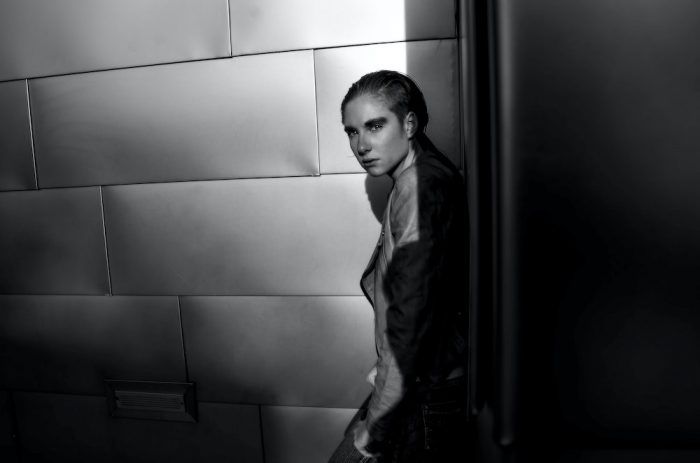I was waiting next to a woman at the coffee counter for our respective orders when I noticed an “I survived Covid” pin on her bag.
Almost reflexively, and with the exuberance of talking to strangers again, I commented, “Cute pin!”
“Thanks,” she replied simply.
But then, I sat in the space following this exchange, I thought, wait—what does that pin actually mean?
I had instinctively assumed that the button was a show of solidarity amongst all of us humans, now that we’re free and roaming the wild again.
Until I realized with a sharp stab of horror that she could be wearing that pin because she literally survived COVID-19—in which case, my “cute pin” comment would’ve sounded insensitive.
Or, it could’ve been a statement of Covid-denying sarcasm, in which she was making light of the pandemic and, by extension, dismissing the pain of those who did die of or lost someone to Covid. At this thought, my horror shifted to dread that I had been tricked by a conspiracy theorist into agreeing with them.
My mind and emotions yo-yoing, I stole a few sneaky glances in her direction, searching for clues as to her intentions so I could rest easy if my comment was appropriate, or slink away in shame if not. I discovered nothing. I replayed her “Thanks” in my head to see if I could extract anything more from her tone. Still, nothing.
Well, I did get something. I got a great big dose of our current human reality, especially in America: we don’t trust each other anymore.
We’re divided so sharply we may as well be walking around with our elbows sticking out. Whatever common identity we might’ve once shared has been ripped to pieces—a result of political divisions that cleaved and carved America down to even what food and drink we prefer.
Talking about masks, social distancing, and, of course, the virus—topics on which we should be, if not on the same page, at least reading from the same book—is a risky proposition, whether with strangers, friends, and even family.
We’re witnessing pent-up fear, anxiety, and frustration morph into bad behavior everywhere, so the thought of gathering in large groups is quickly followed by the concern of how people might behave.
Two of my Elephant Journal writer friends recently wrote a post about the wisdom we may have gained during the pandemic. The authors suggested that the pandemic taught us about patience, surrender, and gratitude, among other things. Reading it, I wished I felt their optimism.
I wish I believed that we humans had capitalized on this last year to gain clarity about who we want to be and ground deeper into our truest selves. I wish we’d used this time away from “normal” to rethink and rebuild our healthcare and educational systems. I wish that the pandemic was not for naught, and created the kind of tipping points this world needs to confront the biggest issues of our time, from climate change to human rights.
But I don’t sense this as truth—not in some undeniable way. I don’t see widespread evidence of lessons learned and lives changed.
On a case-by-case basis, yes, I know people who have made sweeping personal changes that might not otherwise have been made. But as a collective? No, I don’t see it. During the pandemic, we were too conflicted, too divided, and too suspicious of each other to have dug into the true meaning of patience, surrender, and gratitude, let alone address the needed societal changes that Covid revealed. Call me a pessimist, but I feel more disconnection and distrust amongst us than ever before.
I don’t think we learned a thing that can be used to better our world. But not because we didn’t have the chance.
When the masquerade party ends and the lights come on, we’re supposed to reckon with the truth at hand. We’re supposed to wake the f*ck up.
The global pandemic came to do just that.
It came to shine a light on our way of life, so we could reflect and adjust accordingly.
It came to force us to shift our priorities to caring for each other, in real life and real-time, rather than settling for relationships with avatars and things.
It came to teach us the value of frontline workers in our country and do more about it than just give them a round of applause. It came to reveal the deep divisions between the haves and the have-nots, primarily when it comes to healthcare and education. It came to show us how the wealthy elite will always find a way to game the system, while forcing so many others to navigate the red tape they, the wealthy, implemented.
Most of all, the pandemic came to be a clarion call for global climate change.
Because it came with such potent power for global transformation, unlike anything else has in recent decades, it could’ve inspired a fresh wave of respect for science and education. Yet, the disdain for education and the educated in some circles is greater than ever.
It could’ve shown us our way back to sustainable living and healthier lifestyles. Instead, we’re already sliding back into old habits.
We should’ve had hard-but-honest conversations about the increasing likelihood of more frequent and deadly pandemics as the human population moves to exceed over eight billion, and made plans as to how to mitigate, if not entirely prevent, them in the future.
We could’ve come together and squashed this virus beneath our collective foot.
Instead, we gave the virus wiggle room. We gave it places to fester, like our nursing homes. And, we gave it time to create variations of itself that are potentially even more deadly.
In some future time, if we face another pandemic, I sense that a large swath of the population will refuse to self-quarantine again. Many will never again make such a personal sacrifice for the “good of others”—certainly not if those “others” belong to the wrong political affiliation, and not with our freshly buffed-up WIIFM (what’s in it for me?) attitudes.
I don’t feel like we’re emerging from this time with shiny, new, egalitarian belief systems. What I feel is the pressure cooker of “normal” being turned up.
We squandered our opportunity like a single-use facemask. And in doing so, we’ve allowed so many deaths to be in vain—600,000 of them. Over half a million people gone to a disease that we don’t even collectively agree exists.
A person being arrested and a person who surrenders themselves to authorities do not undergo the same process; the latter will reckon with their behavior internally while the former will likely project and blame outward—dismissing reality and evidence even when they’re cornered.
We did not surrender to Covid. We were arrested by it. And now, only a few months out from restrictions ending and vaccines being distributed, we’re projecting, blaming, and trying to pretend as if Covid was all just a bad dream, a mere anomaly, a skip in the record playing our favorite song.
Moving full steam ahead, we’re attempting to erase, rather than honor, our collective hardship. No looking back means no looking forward, either.
Being forced to stop is not the same thing as fully dropping into that space where we can catch up with ourselves.
Mandated isolation doesn’t mean we will learn what isolation can teach us if we sit before it as students.
An opportunity to transform does not translate to transformation undergone.
Yes, it appears (for now) that we survived Covid. But we stubbornly refused to allow ourselves to become changed by it. And we needed to change. The earth needed us to change. But we didn’t even change to the degree that we can trust with confidence whether a pin someone is wearing is meant to be antagonistic, a gesture of unity and fellowship, or just a mere statement of truth.
But, enough already with all my cynicism—let me end with a note of optimism: perhaps the next global crisis will be the one to really bring us together!
~


 Share on bsky
Share on bsky





Read 22 comments and reply